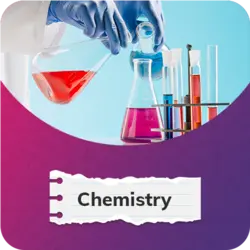
Chemistry is the branch of science that explores the composition, properties, and transformations of matter. It bridges the physical sciences with the life sciences and is often described as the "central science" because it connects physics with biology, geology, environmental science, and medicine. Chemistry plays a critical role in shaping our understanding of the natural world and contributes to advancements in technology, health, agriculture, and industry. From the structure of an atom to the reactions that fuel life processes and power industries, chemistry provides a framework for analyzing and manipulating substances on the atomic and mo
The objective of teaching chemistry in school is to instill scientific literacy and a comprehensive understanding of chemical principles that influence both natural and human-made environments. Students are taught to observe, question, experiment, and apply reasoning—skills that are essential not only for scientific careers but for informed decision-making in everyday life. Chemistry education nurtures curiosity and equips learners with the tools to analyze and solve real-world problems, such as pollution control, energy conservation, and food safety. It encourages the development of practical laboratory skills, scientific inquiry, and evidence-based thinking.
Learning chemistry cultivates multiple transferable skills:
In the early years, chemistry is integrated within general science and focuses on developing observation skills and basic conceptual understanding. Students are introduced to states of matter (solid, liquid, gas), changes in materials (melting, freezing, dissolving), and safety practices in handling household substances. Activities involve simple experiments like mixing vinegar and baking soda or observing melting ice. The goal is to spark curiosity and lay the groundwork for scientific thinking.
Formal instruction in chemistry typically begins in middle school. Students explore atoms and molecules, chemical reactions, the periodic table, elements, and compounds. Experiments and hands-on activities become central to learning, encouraging deeper engagement. They also study topics like acids and bases, physical vs chemical changes, and everyday chemical applications such as rusting, combustion, or photosynthesis. Safety protocols in laboratories are emphasized. At this stage, the curriculum prepares students for the abstraction and quantitative thinking required in higher grades.
High school chemistry delves into more advanced theoretical and practical aspects. Topics include atomic structure, bonding, chemical equations, stoichiometry, thermodynamics, equilibrium, kinetics, electrochemistry, and organic chemistry. Students learn to balance equations, interpret molecular models, and perform titrations. Lab work is more complex and data-driven. Emphasis is placed on precision, data interpretation, and scientific communication. Students are introduced to the role of chemistry in industry, health care, agriculture, environmental protection, and forensic science. For students pursuing careers in medicine, engineering, and science, chemistry is a foundational subject.
Chemistry is deeply embedded in everyday life—everything from cooking and cleaning to medicine, cosmetics, plastics, and fuel involves chemical processes. Understanding chemistry allows students to appreciate the materials they use, make informed choices about health and environment, and contribute to solving global issues like climate change, pollution, and sustainable energy. The subject also supports innovation in pharmaceuticals, nanotechnology, food science, and clean energy.
Chemistry teachers play a crucial role in demystifying complex topics and making abstract concepts accessible. Through demonstrations, analogies, models, and experiments, they build interest and confidence among students. Teachers guide inquiry, encourage questioning, and promote safe lab practices. In upper grades, they also mentor students in projects, research, and preparation for competitive exams like NEET, JEE, SAT, or AP.
Students are assessed through a mix of:
Evaluation focuses not just on theoretical knowledge but also practical proficiency, logical reasoning, and application of concepts.
Chemistry can be perceived as difficult due to its abstract nature and heavy reliance on symbolic representations. Students often struggle with balancing equations, visualizing molecules, or grasping multi-step reactions. Teachers need to adopt innovative methods, such as simulation tools, animations, and real-life examples, to aid understanding. Integrating chemistry with social, ethical, and environmental contexts helps students see its relevance.
Chemistry is a vital subject that fosters a scientific mindset, deepens understanding of the material world, and equips learners for careers in science, technology, and health. Its structured progression from concrete observation in early grades to theoretical rigor in senior secondary levels ensures students develop both competence and confidence. With its far-reaching applications and interdisciplinary connections, chemistry continues to be a cornerstone of modern education and human progress.